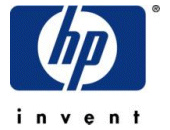Latest news
 |
Napster Sold – Yet Again (27 Mar 2025 1:16)
The world’s most iconic peer-to-peer music-sharing platform, once infamous for its role in digital piracy, has once again been sold.
|
 |
YouTube viewing now happens in TVs (11 Feb 2025 2:43)
Smartphones are no longer the primary device for watching YouTube. Instead, televisions—those big screens in our living rooms—have taken the top spot as the most-used platform for YouTube viewing at home.
|
 |
Sony to end production of writable Blu-ray discs, MiniDiscs and MiniDV tapes (24 Jan 2025 11:27)
Sony has announced that it will halt the production of writable Blu-ray discs, MiniDiscs, and MiniDV tapes in February 2025.
|
 |
Nintendo announces Switch 2 - Long video released, but specs still under wraps (16 Jan 2025 11:33)
After years of anticipation, Nintendo has officially unveiled its next-generation console, the Nintendo Switch 2, in a newly released promotional video. However, the company has yet to reveal the exact technical specifications, promising to share mor
|
 |
YouTube Premium starts showing ads to subscribers (13 Nov 2024 3:09)
For years, YouTube Premium has been marketed as a way to enjoy an ad-free YouTube experience. But apparently, that is no longer the case, as Premium subscribers are now starting to see ads on the platform.
|
News archive
 In a move following the company's 2005 decision to cease producing iPods, Hewlett-Packard has now stopped distributing Apple's iTunes software with its PCs. Instead the company will now distribute Real Network's Rhapsody software. HP had been distributing iTunes with new PCs since 2004. The deal had been announced at the Consumer Electronics Show in Los Vegas. Now that HP is distributing Rhapsody instead of iTunes, customers will also receive a 30 free trial to Real's music subscription service.
In a move following the company's 2005 decision to cease producing iPods, Hewlett-Packard has now stopped distributing Apple's iTunes software with its PCs. Instead the company will now distribute Real Network's Rhapsody software. HP had been distributing iTunes with new PCs since 2004. The deal had been announced at the Consumer Electronics Show in Los Vegas. Now that HP is distributing Rhapsody instead of iTunes, customers will also receive a 30 free trial to Real's music subscription service.













